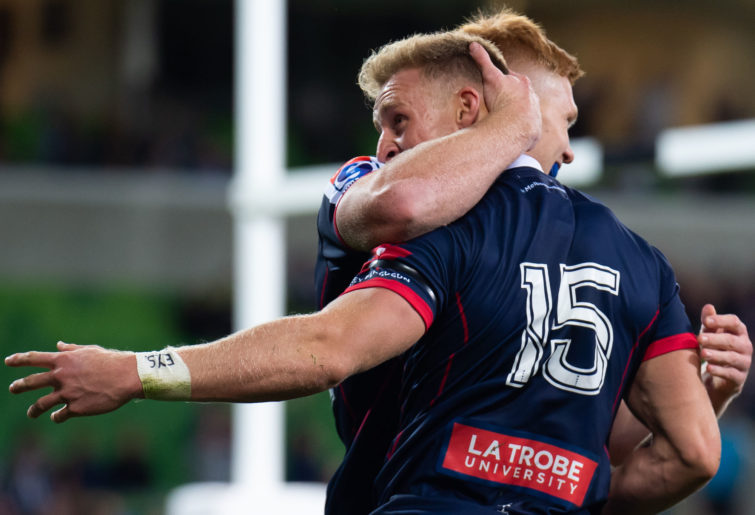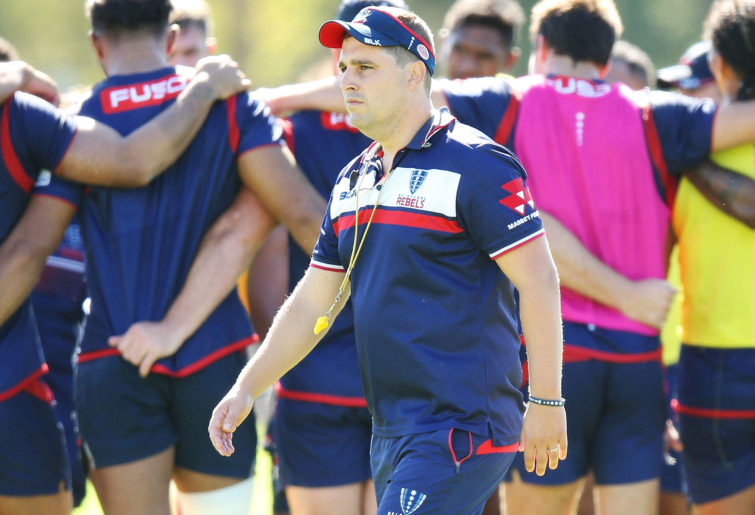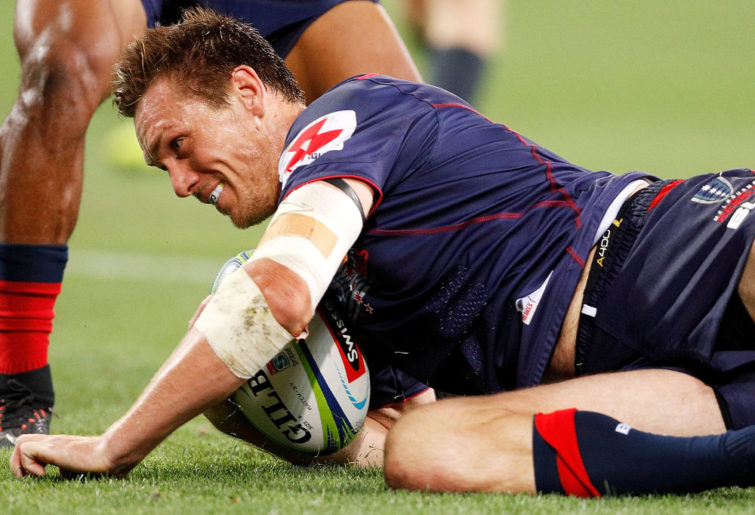You don’t need to be a rugby genius to know why the Crusaders dominated Super Rugby again in 2019 – their third successive championship, and tenth overall.
A side chock-full of All Blacks, a tight-knit coaching unit headed by the personable, talented Scott Robertson, heady recruiting and a long-standing culture of excellence enveloping the whole organisation, all add up to an irresistible, all-conquering mix.
Cast the net wider and consider how Super Rugby’s next best teams over recent years – the Hurricanes, the Lions, and now, the Jaguares, have similar characteristics that set them apart from the also-rans.
Principal among these is continuity in personnel over a period of time. If you like, ‘time in the saddle’ for the team and the support group, in which to bed down systems and have players and coaches working instinctively in tune with each other, rather than having to continually stop and to address new issues, and to map out an agreed path.
Johan Ackermann stepped into a broken environment at the Lions, but by determining the style of game he wanted to play, getting the players he wanted on the list, getting them to buy into a common philosophy (on-field and off), and then keeping the group together over a period of five years, the Lions shifted from being a basket case to entertainers and front-runners.
Similarly, the Jaguares have taken four years to bed themselves down in Super Rugby, to understand the type of game that is required, to adjust to travel demands and so on.
And while there has been a change of head coach, the core playing and administrative group has remained intact, manifested this year in performances notably more consistent, authoritative and mature.
It’s fair to say that all franchises understand this model and, to varying degrees, are trying to adopt it. But for most of them, including the Melbourne Rebels, the practice is proving far more difficult than the theory.

(Photo by Speed Media/Icon Sportswire via Getty Images)
Never having played finals since their inception in 2011, expectations were high among media and fans that 2019 would finally be the year for the Rebels to break though.
Assertive recruiting (Isi Naisarani, Quade Cooper, Luke Jones, Matt Toomua) added impressive playing depth, more than offsetting the losses of Amanaki Mafi and Lopeti Timani.
The year began well, mid-season was marked by the infamous, ‘20 penalties to 1’ loss in Johannesburg, but by the time the Rebels were outmuscled by the Stormers and Bulls at home, it was clear that not all of the required foundations were in place.
Still in the top eight entering the final round, but requiring a win at home against the Chiefs, the Rebels capitulated, leaking nine tries in a 59-8 defeat.
Understandably, it was an emotional time for the club, head coach Dave Wessels explaining; “It was devastating. The overwhelming feeling was that we had let ourselves and the broader community down.”
As the high profile face of the club, it was incumbent on Wessels to lead his group through the various stages of grief and rationalisation, with a view to focusing, as soon as possible, on how they can not only continue to improve, but to translate this into actual results next season and beyond.
“The question I had to come to terms with was why, when the pressure came on, did we not handle that pressure in a way we could be proud of?” he said.
Another year wiser, and modest to a fault, Wessels is quick to accept his share of the responsibility. As a young coach, he draws on advice and mentorship from a range of sources, including 2007 World Cup winning coach, Jake White.
But with all that advice sometimes conflicting, expect to see a hardened attitude in 2020 around matters like selection and group standards.
“My challenge is to determine how am I going to drive, every day, what is acceptable and what isn’t acceptable”, he explains. “In terms of what happens on the field and standards off the field, the way we do things in the community, and around the club. And if I have to be prepared to drop players, so be it.”
Wessels is proud and supportive of his players, and backstories outlining individual players’ personal sacrifices, overcoming of adversity, and demonstrating the best of human and family values, roll off his tongue.
But we also delve into one of the key questions at the heart of Australian rugby’s difficulties over the last decade; are the players good enough?
I offer the theory that, while the Rebels’ playing list looked exceptionally strong, in retrospect, this was in an Australian context only; by comparison to what had gone before at the club, or to other Australian franchises.
But when stacked up against the bigger South African sides, and traditional New Zealand powerhouses, this was not yet enough.
“There is a generation of Australian players who haven’t won anything. Sure, we had Will (Genia) and Quade (Cooper) this year, but even the title they won was way back in 2011. Looking at their overall records, in Tests and Super Rugby, they’re among our very best, yet they still had more losses than wins”, Wessels responds.
“So our challenge is, how do we change that mentality, and break that cycle, where players either learn to accept not winning, or don’t have the capabilities to win?”

(Photo by Michael Dodge/Getty Images)
The discussion leads into the difficult macro-environment for Rugby in Australia, something that continues to frustrate Wessels.
“Everything we hear and read is about how Australian rugby isn’t going well. It’s proving very difficult to get out of that cycle, and one of the problems is that it reinforces to players that things are tougher than they should be, and therefore it’s ok to lose.
“We have to figure out how to withdraw from that type of dialogue, in order to create greater self-belief”, he concludes.
Rebels CEO, Baden Stephenson is the man charged, along with his fellow Australian CEO’s, with steering the franchise in unpropitious financial circumstances. He identifies an issue around uneven playing fields.
“Our charter is to both grow the game in our developing region and be a successful high-performance franchise”, he says.
“That can be difficult to do when some of the overseas sides we compete against don’t have that same requirement nor the same salary restrictions.”
That’s something that Rebels Chairman, Paul Docherty, references when he describes the club. “There are not many levers but a whole lot of moving parts. It’s a very complex puzzle to get all of those parts working in harmony.”
Both men assess that the club is in a similar place on and off the field, and recognise both the requirement, and the opportunity to be derived from developing all aspects of the club simultaneously, across three key areas; more clarity around strategic priorities, continued enhancement of club identity, and broader and better leadership.
Docherty points to four changes in ownership structure in the club’s eight-year existence, from private ownership to Rugby Australia, back to private, and now, with the Rebels in their second year of community ownership.
“Unsurprisingly, we’re still building a narrative around our brand, who we are and what we stand for. Everyone says, just be like the Storm next door, or the Crusaders, they have this. But of course, the culture of winning is not something you can easily build, just because you want to.”
In Dane Haylett-Petty and Angus Cottrell, Wessels is confident he has found two men with the right leadership qualities to help carry his team forward, but acknowledges the challenge around developing more leaders, particularly given that time and experience are intrinsic factors.
“Look at when we played teams like the Waratahs and Crusaders. They are calling on multiple players with around or over 100 games for their club. These two guys have just ticked over twenty games here.
“So in that sense, we’re still like a ‘start-up’ business, and we have to figure out how we can add experience in the right places, and accelerate that process, and also ensure that we have the right players on board, so that when they get to 40 or 50 games, they are guys who are capable of going on to play 100 games for the club.”

(Photo by Daniel Pockett/Getty Images)
Stephenson notes how that leadership gap feeds into a focus on identity and how, “We need to be really clear about our standards and to be consistent in driving those standards. We don’t want to be governed by a whole heap of rules, but because we don’t have guys with hundreds of games around the changing room, we need to put better guard rails in place, pick up on any red flags sooner, and act on them.”
“Part of that approach revolves around players not only engaging with sponsors, club members and the wider community, because they already do this willingly, but having them inherently understand why it’s important that they do it. Why, if we don’t have the commercial side right, it will affect the football. Why, if we don’t engage sufficiently with the community, it will affect crowds, and so on.”
“So it’s critical that everyone in the club has better awareness and that we forge stronger links between all of our components”, he adds.
Looking back, Docherty points to the incident in Dunedin after the final 2018 match, involving Timani and Mafi, and recognises that what is happening right now, with respect to planning, recruitment and commercial partnerships, will be critical to their fortunes in 2020.
“That incident, all of the reviews and attention to all of the cultural implications and so on, chewed up an incredible amount of time and energy”, he explains.
“What we’ve since realised is how critical those first 8-10 weeks after the end of the season are, in terms of getting everything in place for next season.”
“In retrospect, we missed that window. And then, because we started the season so well, what that did was mask how far behind we actually were in important aspects like ensuring that we had enough strength in our culture and enough leadership throughout the club, to navigate our way through when things invariably turned tough.”
Regardless, there is also a sense of perspective about what has been achieved so far. A number of new Wallabies have been created, which is important in signaling to other players that Melbourne is the right place to be.
Despite being set back by the demise of the Sunwolves, there are 11 commercial partners who are currently signed on for the journey, who have recognised stability in the club’s operational leadership, and improved results on-field.
“The margins are very fine”, says Stephenson. “Win our last game and we potentially finish fifth or sixth, lose it and we end up eleventh. We’re not that far away, but in the end it’s fair to say that we got what we deserved.”
The Rebels are no different from all of the other sides looking to drag themselves up towards the top end of the ladder.
While fan discussions often descend into little more than is the coach is great/hopeless, or is player x better than player y, the club is hard at work addressing the many influential organisational and high performance factors that lie at the heart of Super Rugby success.































































































